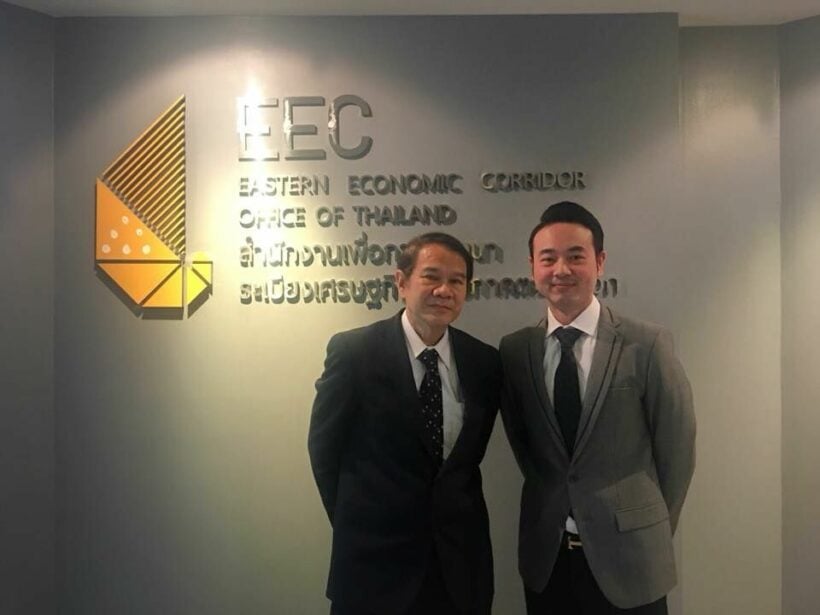US$37 billion smart city gets green light in Pattaya

Plans to build a US$37 billion smart city in Chon Buri got the go-ahead yesterday by the Eastern Economic Corridor Policy Committee.
PM Prayut Chan-o-cha, who chaired the meeting, revealed the smart dream hub can be realised thanks to public and private investment in automotive, robotics, healthcare and logistics companies. The investment will create about 200,000 jobs and accommodate 350,000 people by 2032.
A smart city is a technologically modern urban area that uses different types of electronic methods, voice activation methods and sensors to collect specific data. The smart city concept integrates information and communication technology, and various physical devices connected to the Internet of Things network to optimize the efficiency of city operations and services and connect to citizens.
The 10- year project will cover a 15,000-rai plot of land in Bang Lamung district, Chon Buri, 15 kilometres from U-Tapao International Airport.
Kanit Sangsubhan, secretary-general of the EEC, reported the project will comprise five business centres for companies to rent as commercial areas. They will include a hub to house regional headquarters of firms, a financial centre, and areas for precision medicine, international research and development, and future industries such as clean energy and 5G technology.
“Residents will be mostly those employed in the industrial area, which is set to draw investments of about 2.2-trillion baht over the next five years.
“The new city will be liveable for the new generation of people as well as operate as business centres. We created this new project to compensate for the income Thailand lost during the pandemic.”
Kanit reported that the 37.7 billion baht of the total investment will come from government agencies, 131 billion from public-private partnerships and 1.18 trillion from private investment.
The government believe the new smart city can add an estimated 2-trillion baht to Thailand’s GDP within 10 years, and the value of assets after a 50-year concession period will jump fivefold.
The EEC also made public its seawater desalination development projects at Map Ta Phut and Pattaya, worth a combined 7.7 billion baht to ensure sufficient water supply in the EEC areas.
The projects will help supply 200,000 cubic metres of water per day to the EEC in 2027, rising to 300,000 cubic metres per day in 2037.
Desalination is an artificial process through which saline water, usually seawater, is converted into fresh water. The seawater desalination projects would help prevent water shortages in the EEC area if a drought were to take place.
SOURCE: Bloomberg Bangkok Post
Latest Thailand News
Follow The Thaiger on Google News:


























